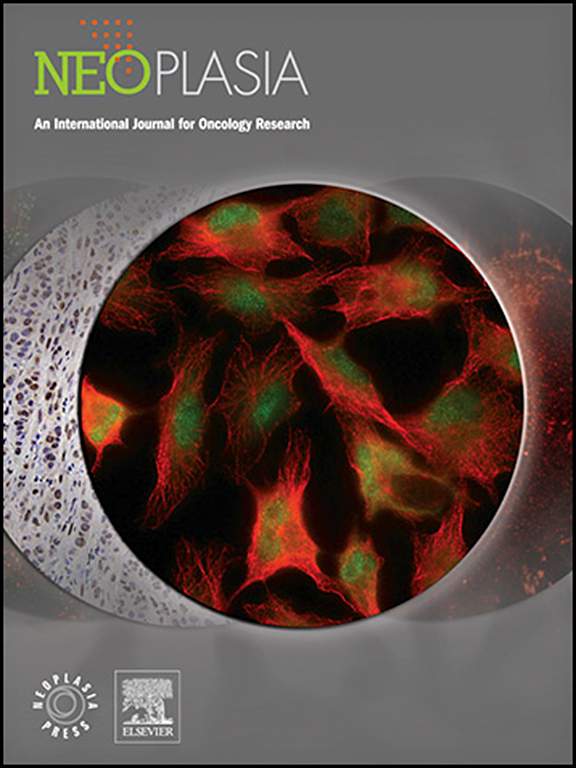Tackling ALT-positive neuroblastoma: is it time to redefine risk classification systems? A systematic review with IPD meta-analysis
IF 4.8
2区 医学
Q1 Biochemistry, Genetics and Molecular Biology
引用次数: 0
Abstract
Background
The heterogeneous prognosis in neuroblastoma, shaped by telomere maintenance mechanisms (TMMs), notably the alternative lengthening of telomeres (ALT) pathway, necessitates a refined risk classification for high-risk patients. Current systems often lack precision, hindering tailored treatment approaches. This individual participant data (IPD) meta-analysis of survival among ALT-positive patients aims to improve risk classification systems, enhancing therapeutic strategies and patient outcomes.
Methods
Following PRISMA-IPD guidelines, we conducted a comprehensive review of neuroblastoma patients retrieved from PubMed, Scopus, and Embase databases until March-2024. Patients were stratified into ALT-positive and TMM-negative subgroups. Overall and event-free survival probabilities were evaluated.
Results
In our cohort of 293 patients (156 ALT-positive, 137 TMM-negative) obtained from eight different studies, ALT-positive individuals displayed lower survival rates than TMM-negative patients. Non-stage 4 ALT-positive patients had reduced overall and event-free survival probabilities compared to their TMM-negative counterparts, indicating potential misclassification. Stage 4 ALT-positive patients similarly showed poorer survival outcomes than non-stage 4 TMM-negative patients, underscoring the significance of ALT in patient prognosis.
Conclusions
Our study highlights poorer outcomes in ALT-positive neuroblastoma patients, emphasizing the need to integrate TMM status into international risk classification guidelines. Standardizing TMM assessment is key for refining treatment strategies, considering the unique biology of ALT-positive patients.
治疗alt阳性神经母细胞瘤:是时候重新定义风险分类系统了吗?IPD荟萃分析的系统综述。
背景:端粒维持机制(TMMs)塑造了神经母细胞瘤的异质预后,特别是端粒延长(ALT)途径,需要对高危患者进行精细的风险分类。目前的系统往往缺乏精确性,阻碍了量身定制的治疗方法。这项针对alt阳性患者生存的个体参与者数据(IPD)荟萃分析旨在改进风险分类系统,增强治疗策略和患者预后。方法:遵循PRISMA-IPD指南,我们对从PubMed、Scopus和Embase数据库检索的神经母细胞瘤患者进行了全面的回顾,直到2024年3月。将患者分为alt阳性和tmm阴性亚组。评估总体和无事件生存概率。结果:我们从8个不同的研究中获得293例患者(156例alt阳性,137例tmm阴性),alt阳性个体的生存率低于tmm阴性患者。与tmm阴性患者相比,非4期alt阳性患者的总体生存率和无事件生存率降低,这表明可能存在错误分类。4期ALT阳性患者的生存结果同样比非4期tmm阴性患者差,强调了ALT在患者预后中的重要性。结论:我们的研究强调了alt阳性神经母细胞瘤患者的预后较差,强调了将TMM状态纳入国际风险分类指南的必要性。考虑到alt阳性患者独特的生物学特性,标准化TMM评估是完善治疗策略的关键。
本文章由计算机程序翻译,如有差异,请以英文原文为准。
求助全文
约1分钟内获得全文
求助全文
来源期刊

Neoplasia
医学-肿瘤学
CiteScore
9.20
自引率
2.10%
发文量
82
审稿时长
26 days
期刊介绍:
Neoplasia publishes the results of novel investigations in all areas of oncology research. The title Neoplasia was chosen to convey the journal’s breadth, which encompasses the traditional disciplines of cancer research as well as emerging fields and interdisciplinary investigations. Neoplasia is interested in studies describing new molecular and genetic findings relating to the neoplastic phenotype and in laboratory and clinical studies demonstrating creative applications of advances in the basic sciences to risk assessment, prognostic indications, detection, diagnosis, and treatment. In addition to regular Research Reports, Neoplasia also publishes Reviews and Meeting Reports. Neoplasia is committed to ensuring a thorough, fair, and rapid review and publication schedule to further its mission of serving both the scientific and clinical communities by disseminating important data and ideas in cancer research.
 求助内容:
求助内容: 应助结果提醒方式:
应助结果提醒方式:


